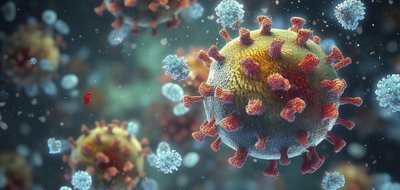
Neurogenesis is disrupted in human hippocampal progenitor cells upon exposure to serum samples from hospitalized COVID-19 patients with neurological symptoms
SUMMARY
Researchers from King’s College London have shown that when brain cells are directly exposed to blood taken from COVID-19 patients with delirium, there is an increase in cell death and a decrease in the generation of new brain cells. The study’s findings indicate a key role for the inflammatory proteins (cytokines) produced by the immune system during infection and could help inform potential treatments to reduce symptoms of confusion, disorientation and memory deficits in COVID-19 patients.
FEATURED EXPERT
Alessandra Borsini, Gargi Mandal, and Carmine M. Pariante from the Department of Psychological Medicine at King's College London, UK
GET STARTED
Read more about this study online.
Read time: 30 minutes
PUBLISHED BY
Molecular Psychiatry
October 5, 2022

